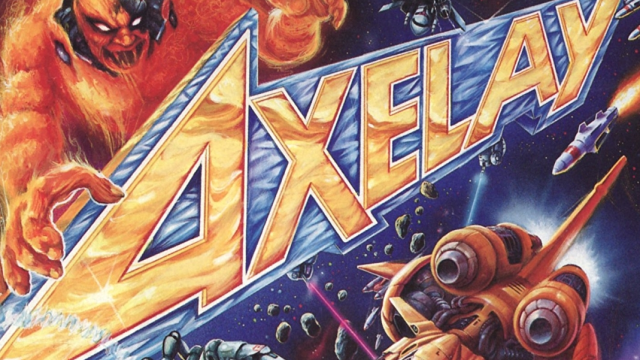Welcome to Morning Music, Kotaku’s new, daily hangout for folks who love video games and the cool-arse sounds they make.
Every weekday you can look forward to hearing (and discussing!) a bit of game music that’s beautiful, rousing, technically interesting, or that we just think is worth a listen. Sometimes a single track, more often an entire album. Some days we’ll have a lot to say, others it’ll be closer to “yo, you should really check this out. Great shit.”
We’ll see how things develop.
I’m Alexandra, and I’ll be your most frequent nerd in residence. I love sharing music I enjoy and hearing others’ takes, which is the simple idea behind Morning Music.
While I like a lot of music, unless Mario Paint counts, I am not a musician. I am not versed in music theory, nor how musicians make their melodic sausage. (Apologies for coining that phrase… seriously, wow.) So it would be cool if some of y’all who are knowledgeable about such chime in with your observations, fun facts, and general analysis about genre, music theory, technical tidbits, unusual dynamics you’re hearing, you name it.
I’d like that a lot. Let’s enjoy great music and share some knowledge!
Feel free to make suggestions for future Morning Musics, too. My focus won’t necessarily be on the most popular stuff — I have a soft spot for underdogs, and we all know about mainstays like Chrono Trigger — but I’d love for y’all to turn me on to great jams that never made it onto my radar.
Enough setup. I didn’t want to make too big a deal about the inaugural pick, so I’m just goin’ with an old fave: Axelay [OST / Longplay / VGMdb]. The OST for Konami’s 1992 Super Nintendo shooter is simultaneously strange, catchy, melodic, and technically accomplished. It also has a very rare pedigree.
Give it a listen:
(If you wanna skip the slow-building intro, stage 1, “Unkai,” starts at 2:37, and the vid’s description has handy links to each song.)
Axelay is a weirdly experimental shooter, and the same goes for its soundtrack, which is a really original mix of heroic anthems set to fast beats and slower, darker tunes that play up the atmosphere. It takes canny advantage of the SNES’ SPC-700 sound chip like few other games; it’s hard to think of many that boast such sophisticated instrumentation or variety of styles.
Stage two’s track, “Colony,” is actually one of my favourite SNES songs. At 1:15 it hits a memorable climax as you slowly crawl through the interior of an enormous cylindrical space station, resulting in a rare moment of perfect audio-visual-gameplay synchronicity that sent chills down my young spine. (“Colony” got an excellent arranged version in the 1995 album Shooting Battle Konami Perfect Selection II. Fun fact: A scratchy MP2 of that was my first-ever “MP3.”)
Each boss fight gets its own theme — I love when games do this — well demonstrated with the ominous, beep-strewn bassline of “Cosmic Dance,” which accompanies the encounter with stage 2’s ED-209-like walking robot.
Speaking of bosses, Axelay makes great use of voice samples, and about 70 seconds into the climactic endgame track “Danger,” the music devolves into metallic, distorted alien voices that are just as much a part of the composition as they are sound effects. It’s so well done. This track shows a cinematic flair also apparent in Konami’s 1992 SNES Contra III: The Alien Wars, which timed its musical escalations to the in-game action in a way that was then very novel.
Returning to the main themes, stage three’s “Mother” is a lot of fun too, with rollicking drum sequences framing a series of urgent melodies that are nothing if not quintessentially ‘90s shoot ‘em up. And stage four‘s “Silence” caps this excellent run with a much more subdued, bassline-driven synth exploration that well suits the subterranean caves you find yourself navigating. Unique, creative, complex, lovely: This is some top-tier SPC-700 exploitation.
So, that pedigree. The ornate quality of “Silence” may also call to mind a previous Konami SNES music highlight, Super Castlevania IV, and it’s no coincidence that Axelay’s main composer, Taro Kudo, contributed to that seminal soundtrack too. It’s a bummer, though, if you loved Axelay and want more, because Kudo doesn’t seem to have done much composition work afterward, and certainly not in Axelay’s high-energy style. That said, he did contribute to the famous 1997 PS1 “anti-RPG” Moon: Remix RPG Adventure, which is finally coming out in English on August 27. So that’s something.
While I wish Kudo had done more 16-bit work, his two SNES soundtracks remain stunners, and Axelay in particular is a treat. Thank you, Taro Kudo.
That was more than I expected to write! They won’t always be this in-depth, but I do hope you’ll always find something enjoyable to listen to and chat about whenever you stop by. Welcome to Morning Music, and I’ll see you bright and early tomorrow. Say hi in the comments!

Leave a Reply